Tsunehisa
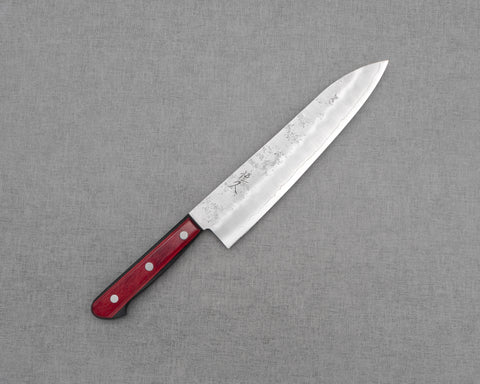
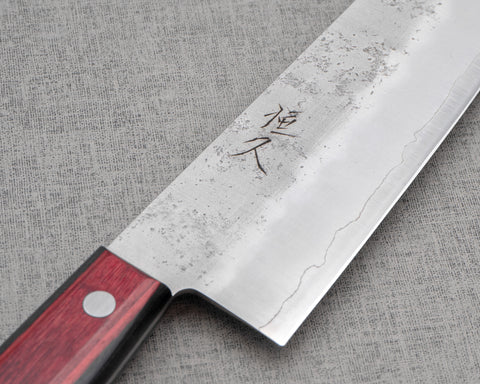
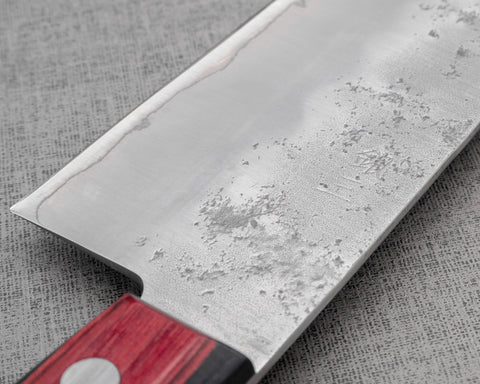
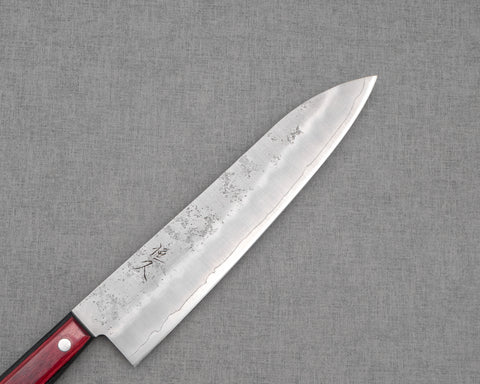
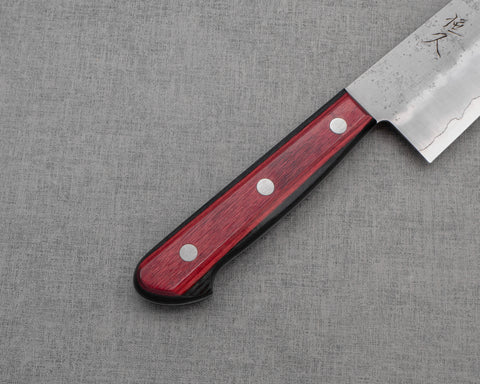
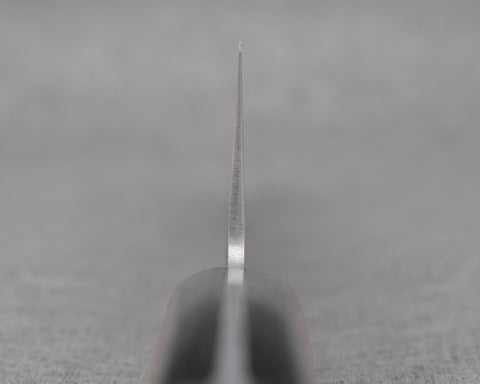
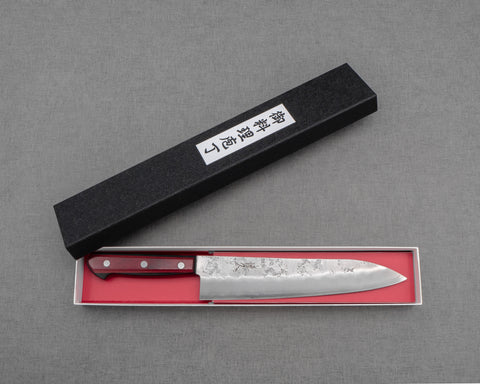
Tsunehisa Ginsan (Silver #3) Nashiji 210mm Gyuto
目前沒有提供取貨服務
Expertly handcrafted, this Petty knife features a Ginsan (Silver #3) stainless carbon steel core, stainless steel cladding, a beautiful Kasumi line and a Nashiji finish. Its excellent fit-and-finish and affordable price make it a great way to enter the world of Japanese knives. The balance point is located near the top of the handle.
Spec:
- Origin (Made in): Tosa, Kōchi Prefecture, Japan
- Brand: Sakai Tsunehisa
- Knife Type: Petty
- Blade
- Construction: San Mai
- Grind: Double-edged Blade (50/50 Grind)
- Hagane (Core Steel): Ginsan (Silver #3)
- Jigane (Cladding): Stainless Steel
- Hardness: 61-62 HRC
- Hand-forged, hand-grinded, hand-sharpened
- Blade Finishes:
- Nashiji
- Kasumi Polish
- Blade Length: 210mm (8.3")
- Blade Height (at heel): 46mm
- Spine Thickness
- Above heel: 1.6mm
- Middle: 1.6mm
- Handle
- Material: Red and Black Pakkawood
- Length: 115mm
- Overall Length: 335mm
- Weight: 167g (5.89oz)
- Mark (Front): In Japanese Kanji "Tsunehisa" (恒久)
- Stamped Mark (Back): In Japanese Kanji "Silver #3" (銀三)
About Tsunehisa 恒久
Tsunehisa Hamono, a mid-sized factory in Tosa, Japan, offers a range of high-quality knives with affordable prices. Each knife showcases the distinct steel and manufacturing techniques of its region. The brand is an initiative by Shibata Takayuki to bring these superior Japanese knives to the world. Tsunehisa ensures affordable pricing without compromising on the knife's excellence.
Care:
Ginsan (Gin3 or Silver #3) is a stainless carbon steel, with 14% added Chromium. Retaining the character of Japanese carbon steel, with similar hardness of Shirogami #2, Ginsan is stainless. It's edge retention is only slightly inferior to Shirogami #2, but the fact that it combines ease of sharpening, carbon steel character as well being stainless makes it a great choice for those who wish to have a Japanese carbon steel knife that is easy to maintain.
Cutting Surface:
Recommended cutting surface: wood, rubberized boards and high-end composites, and quality plastics such as polyethene make acceptable cutting surfaces, and will help protect and prolong knife’s edge. AVOID glass, metal, countertops, and other rigid, non-forgiving surfaces.
Sharpening:
We recommend sharpening all quality Japanese knives on whetstones, as we believe they yield the best results for your knives.
